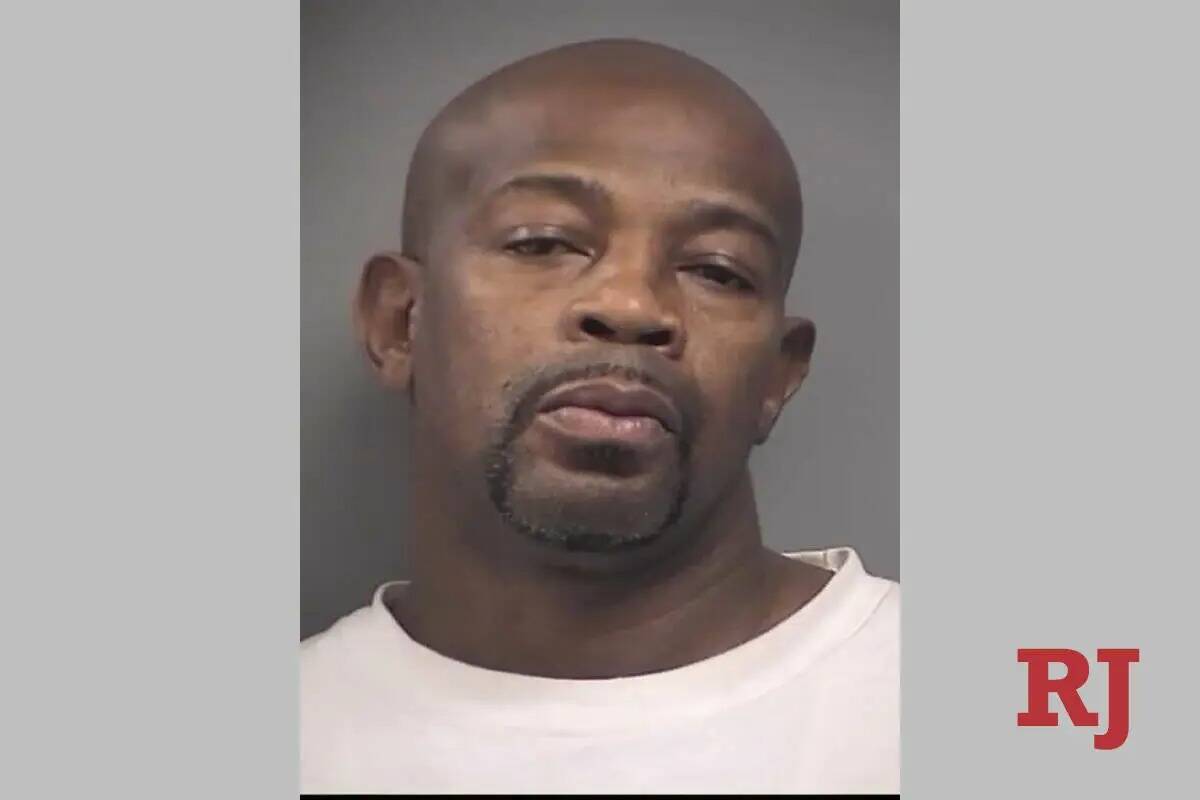NTSB: Not holding repeat speeder accountable contributed to deadly crash

Southern Nevada’s practice of reducing speeding tickets to parking violations played a significant role in a North Las Vegas crash that killed nine people in January 2022, the National Transportation Safety Board concluded Tuesday.
The driver responsible for the crash was cited for speeding at least seven times in the prior 10 years. However, only one of those tickets appeared on Gary Dean Robinson’s official Nevada DMV driving record, the federal investigative agency determined.
“The state of Nevada failed to hold the driver accountable,” board member Michael Graham said.
Robinson, 59, was driving over 100 mph when he ran a red light and crashed his red Dodge Challenger into a minivan, killing the family inside. Robinson and his passenger also died. An autopsy revealed high levels of cocaine and PCP in Robinson’s system.
Despite the fact that Robinson received at least five speeding tickets since August 2020 — including one for traveling 40 mph over the limit — the Las Vegas Review-Journal found none of the charges on his driving history because of serious flaws and gaps in Southern Nevada’s traffic enforcement systems.
Newspaper investigation cited
Robinson is far from alone. An investigation by the newspaper found more than 200,000 traffic tickets were reduced to parking violations between 2017 and 2021, concealing them from state driving records and resulting in zero demerit points.
The NTSB repeatedly cited the Review-Journal’s reporting during its hearing. Graham said the articles helped expose “systemic deficiencies that allowed a driver with the history of speeding tickets to continue operating a motor vehicle unimpeded and with impunity.”
Federal research has shown that drivers frequently cited for speeding are at higher risk of causing fatal crashes, according to the board.
“Had this driver been identified as a repeat offender, it seems there is a much greater likelihood that his behavior would have been addressed and perhaps this tragedy could have been avoided,” NTSB member Tom Chapman said.
The board also agreed with the Review-Journal’s finding that Southern Nevada traffic courts operate in information silos, making it difficult for police and judges to know a person’s complete ticket history. Some drivers are treated as first-time defendants even when they have received infractions in neighboring cities.
This year, Nevada decriminalized many traffic offenses, making them civil infractions. The change was expected to help hold drivers accountable, but local courts are still reducing large numbers of speeding tickets to parking violations.
Nevada and other states should create centralized databases to store all citation data, regardless of outcome, the NTSB determined. A state task force studying ticket reductions recently reached the same conclusion, although it’s unclear who would be responsible for the system.
UNLV Traffic Safety Coalition coordinator Erin Breen said the federal agency’s scathing assessment was welcome. She’s among the local traffic safety experts who believe ticket reductions hinder authorities’ efforts to track bad drivers.
“I don’t think anyone in the traffic safety arena will argue there needs to be a better system and judicial follow-through,” she said. “To have the weight of a federal agency to say they agree with us, I think it only helps us.”
The NTSB also recommended that the National Highway Traffic Safety Administration require new vehicles to be equipped with technology that warns drivers when they are traveling above the speed limit, and that the nonprofit Insurance Institute of Highway Safety study the safety impacts of automotive advertisements that emphasize speeding and other risky behavior.
Contact Michael Scott Davidson at sdavidson@reviewjournal.com. Follow @ByMSDavidson on X. Davidson is a member of the Review-Journal’s investigative team, focusing on reporting that holds leaders and agencies accountable and exposes wrongdoing.